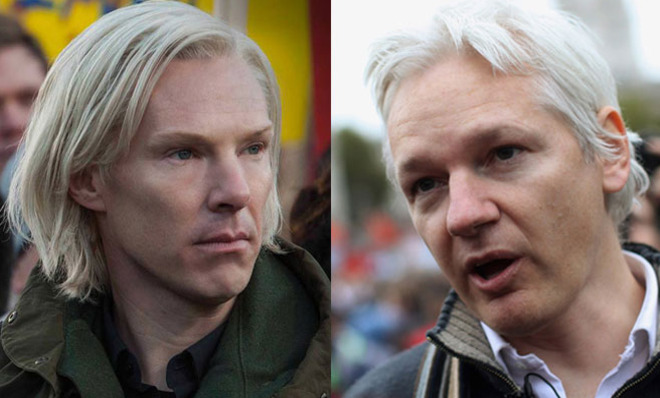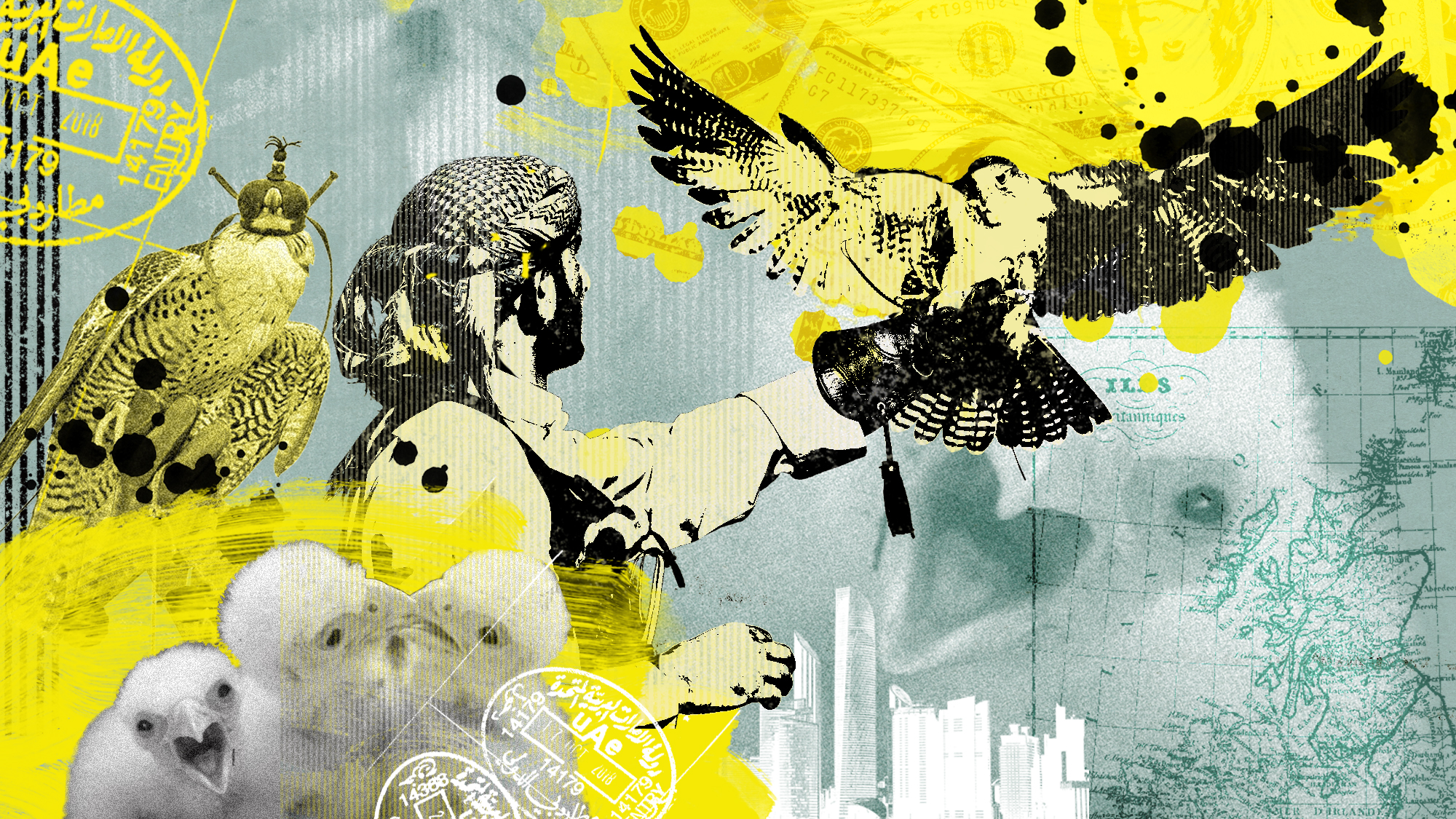5 reasons Julian Assange hates The Fifth Estate
The WikiLeaks founder has turned on the Benedict Cumberbatch-starring biopic

Before the release of The Fifth Estate — the new movie about WikiLeaks founder Julian Assange, which hits theaters in limited release today — Assange himself made it clear that he was not on board with the biopic. He wrote an angry letter to star Benedict Cumberbatch, telling Cumberbatch that he was being used as a "hired gun" to "assume the appearance of the truth in order to assassinate it. To present me as someone morally compromised and to place me in a falsified history. To create a work, not of fiction, but of debased truth."
Assange also took issue with the film’s source material, which he described as "the two most discredited books on the market" — one of which was written by Daniel Berg, Assange’s former right-hand man, portrayed by Daniel Bruhl in the movie.

Why has Assange been so public about his critiques of The Fifth Estate? Here, five theories:
The Week
Escape your echo chamber. Get the facts behind the news, plus analysis from multiple perspectives.

Sign up for The Week's Free Newsletters
From our morning news briefing to a weekly Good News Newsletter, get the best of The Week delivered directly to your inbox.
From our morning news briefing to a weekly Good News Newsletter, get the best of The Week delivered directly to your inbox.
1. Julian Assange is not the hero — and Daniel Berg (sort of) is.
The film doesn’t argue that Julian Assange is a hero or a villain, nor does anyone else become a traditional heroic figure. But the most sympathetic character in The Fifth Estate is Daniel Berg, who attempts to act as Assange’s moral compass when it comes to posting the classified documents that would make WikiLeaks a household name.
In an early scene, Berg argues that any editing of leaked documents "reflects bias," but later pushes Assange to redact names in State Department cables to avoid putting people in danger. Assange, meanwhile, is adamant that the cables be released in their purest, unedited form.
Berg also kills the submission platform for WikiLeaks when he feels Assange has gone too far in disregarding the potential consequences of unedited leaks. He is the only character to really evolve, abandoning his hero worship of Assange and acknowledging the moral ambiguities of WikiLeaks' mission.
A free daily email with the biggest news stories of the day – and the best features from TheWeek.com
2. Assange doesn't come off as likable.
He may not be a villain, but Julian Assange is certainly not a pleasant man in the world of The Fifth Estate. He barges into Berg’s apartment unannounced during an intimate moment with his girlfriend. He’s rude to Berg’s parents, and then tells Berg they’re "suffocating." He scolds Berg for coming up with an alias based on his cat’s name. He’s condescending and repeatedly insults Berg, while talking up "sacrifice" and "loyalty."
Assange’s unlikability is also repeatedly pointed out by the other characters. He’s a "manipulative asshole" and a "mad prophet," says Berg’s girlfriend. "It's just you, and your ego, and the lies you tell to get whatever the fuck you want," Berg yells at Assange in one heated scene. If movie-Berg is right about Assange’s ego, this movie probably isn’t going to thrill him.
3. Berg gets a lot of the credit.
Though movie-Assange flips out when a Wired reporter describes Berg as the "co-founder" of WikiLeaks — something Berg is quick to agree is incorrect — the movie itself gives Berg props for a lot of the site’s successes. For one thing, Berg brings on a friend to help shore up the less-than-secure WikiLeaks network, despite Assange’s objections. At another point, Berg is described by a Guardian reporter as "the grounded one, who helps [Assange] distinguish fact from fiction."
Most significantly, Berg is depicted as the one who orchestrates the coordinated publication of the State Department cables in the New York Times, Der Spiegel, and The Guardian — while Assange initially refuses to hear the proposal.
The real-life Assange has contended that the film’s depiction of Berg is "almost entirely fictitious" — including Berg’s involvement with WikiLeaks releases like the State Department cables and the "Collateral Murder" footage, which showed U.S. Apache helicopters firing on and killing unarmed Iraqis and two Reuters reporters. "He was not even in the same country as the Collateral Murder team," WikiLeaks said in a memo criticizing the film’s script.
The memo adds that Berg was not significantly involved in WikiLeaks after 2010, did not see Assange himself after February of that year, and that "all of the key releases of U.S. government documents in 2010 happened after this point."
4. The movie acknowledges that Assange will dispute its accuracy.
A meta-scene toward the end shows Cumberbatch’s Assange getting asked about the upcoming WikiLeaks movie in an interview. "The Wikileaks movie? Which one. That one? It's based on the worst two books. Full of lies and distortion, like all bad propaganda," he replies. But at that point in the movie, Assange had already been somewhat discredited as untruthful and manipulative, and the scene just underscores that point.
Director Bill Condon expanded on that scene, telling The Verge that Assange "releases this list of ways in which the movie is not true. And we have our own response to that. People have been saying, 'No, no, this is fine. Hang back and don’t engage,' but it is frustrating. Because he just flat-out makes things up. But I hope what you’re saying is right. I think what’s interesting is that it’s just a different target all the time, but it’s the same message: That nobody’s telling the truth about me."
5. In the movie, Assange dyes his hair.
If the previous four suggestions wrestle with weighty issues of truth and subjectivity, as well as the moral conundrums of information activists, consider the possibility that Assange’s dislike of The Fifth Estate boils down to vanity.
In the movie, Assange tells different people various tales about why his hair is white. And Berg eventually reveals that, in fact, he dyes it. According to Assange, this is fabricated. "Julian Assange does not dye or bleach his hair white," the WikiLeaks memo contends.
******
Despite Assange’s complaints, a few things are certain. One is that Cumberbatch totally nails it in his portrayal. And, as Alex von Tunzelmann points out at The Guardian, the movie goes a little bit easy on Assange by leaving out a key chapter in the WikiLeaks saga: "The film all but dodges the sexual assault allegations made against him in Sweden, mentioning them only in a title card at the end."
In the end, every viewer will have to decide what they want to take away from The Fifth Estate — and maybe that's the truest kind of WikiLeaks movie anyway.
-
 The elite falcon trade in the Middle East
The elite falcon trade in the Middle EastUnder the Radar Popularity of the birds of prey has been ‘soaring’ despite doubts over the legality of sourcing and concerns for animal welfare
-
 A running list of the international figures Donald Trump has pardoned
A running list of the international figures Donald Trump has pardonedin depth The president has grown bolder in flexing executive clemency powers beyond national borders
-
 Mixed nuts: RFK Jr.’s new nutrition guidelines receive uneven reviews
Mixed nuts: RFK Jr.’s new nutrition guidelines receive uneven reviewsTalking Points The guidelines emphasize red meat and full-fat dairy